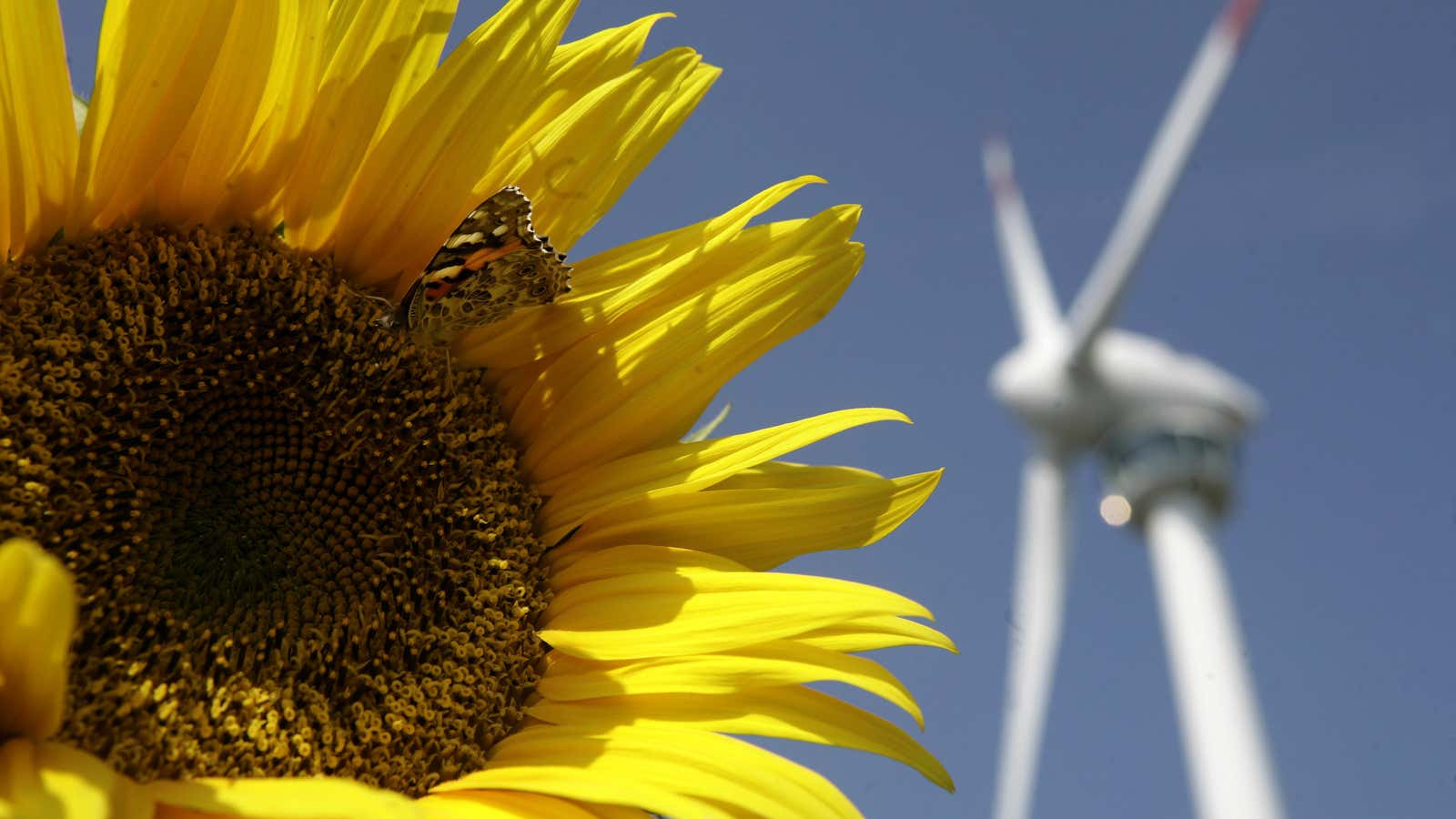The list of European Union (EU) countries beating their renewables goals continues to grow. In what’s been a steady stream of good news over the past three years, more countries than ever are meeting their 2020 targets for renewable energy generation ahead of schedule.
First it was Sweden, Bulgaria, and Estonia. Then last year, Lithuania joined the club.
Now they’re going to need an even bigger clubhouse. Finland, Croatia, Romania, Italy, and the Czech Republic have doubled the number of countries that have reached their 2020 renewable goals. The data comes courtesy of Eurostat, a data repository for all things EU, with the most recent data running through 2014.
Sweden continues to generate far and away the most energy from renewables, largely due to its plentiful hydropower resources. The country generates more than half its energy from renewable sources.
The EU as a whole generated 16% of its energy from renewables. That’s up 1% from last year and has the region on track to meet its 2020 target of 20%. Solar and wind are the fastest-growing sources of renewable electricity generation, with generating capacity growing exponentially over the past 15 years.
This is part of the EU’s handily-dubbed “20-20-20” strategy, which includes mandates to cut greenhouse gas emissions by 20% while increasing renewable energy and energy efficiency by 20% each by 2020 (so really it’s “20-20-20-2020” if you want to get technical about it).
That sets the stage for the EU’s climate pledge as part of the Paris climate talks to cut greenhouse gas emissions to 40% below 1990 levels by 2030.
Other countries are within range of making their goals early as well. That includes Denmark, a country that set a world wind power record last year, as well as Austria and even debt-stricken Greece.
It’s not, however, all good news on the renewables front. Some of the EU’s biggest polluters continue to be far from meeting their goals. Germany, France, and the UK, which together account for 45% of all EU greenhouse gas emissions, are all well below their renewables goals. Of the three, only France has a more ambitious goal than the EU as a whole.
Burning wood and other solid biofuels is also the biggest chunk of renewables in the EU. A Climate Central analysis found that biomass burning on an industrial scale can actually accelerate global warming and the EU is investigating whether biomass should receive subsidies as a renewable form of energy.
A few countries also produced less energy from renewables in 2014 than they did in 2013. That includes Bulgaria and Croatia, showing that reaching the 2020 goals is only part of the equation.
This post originally appeared at Climate Central.
